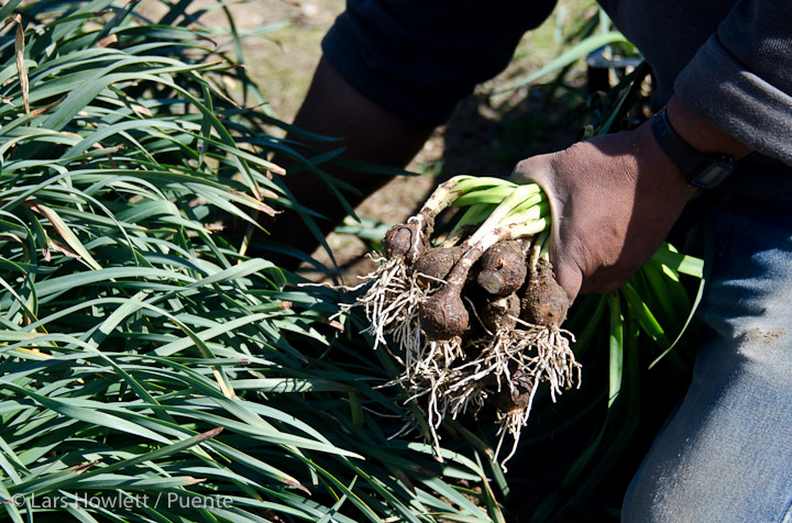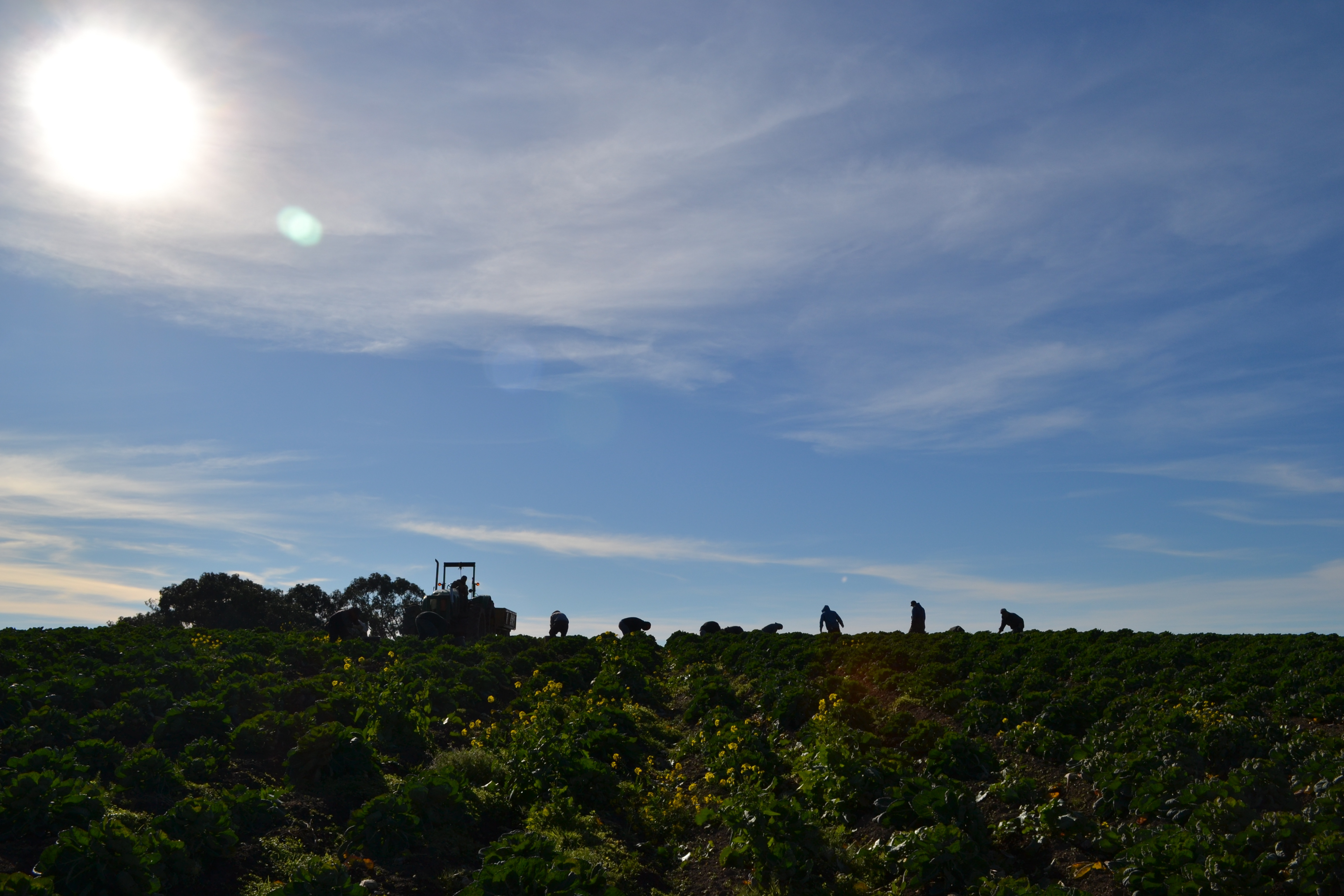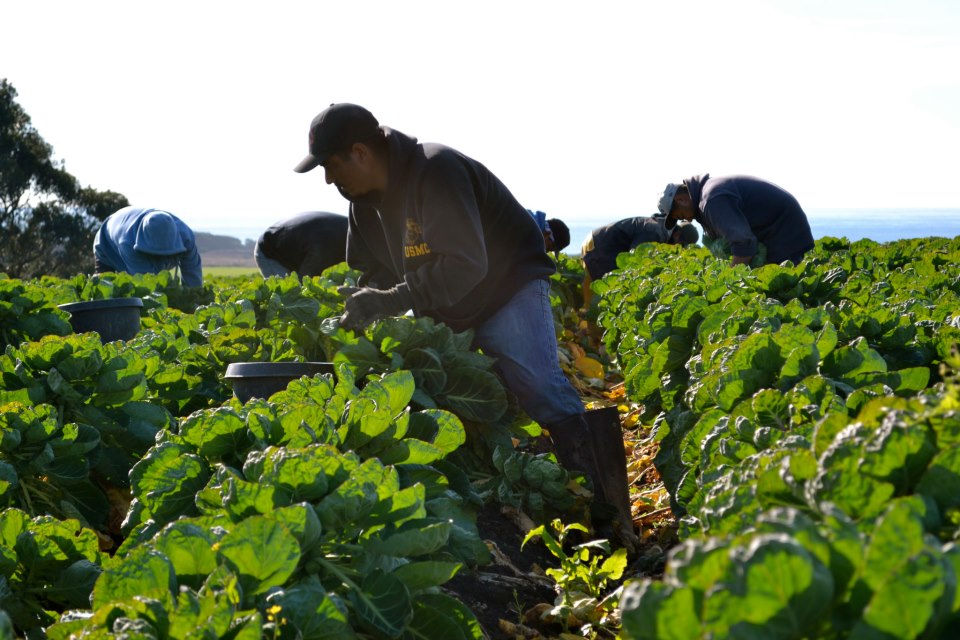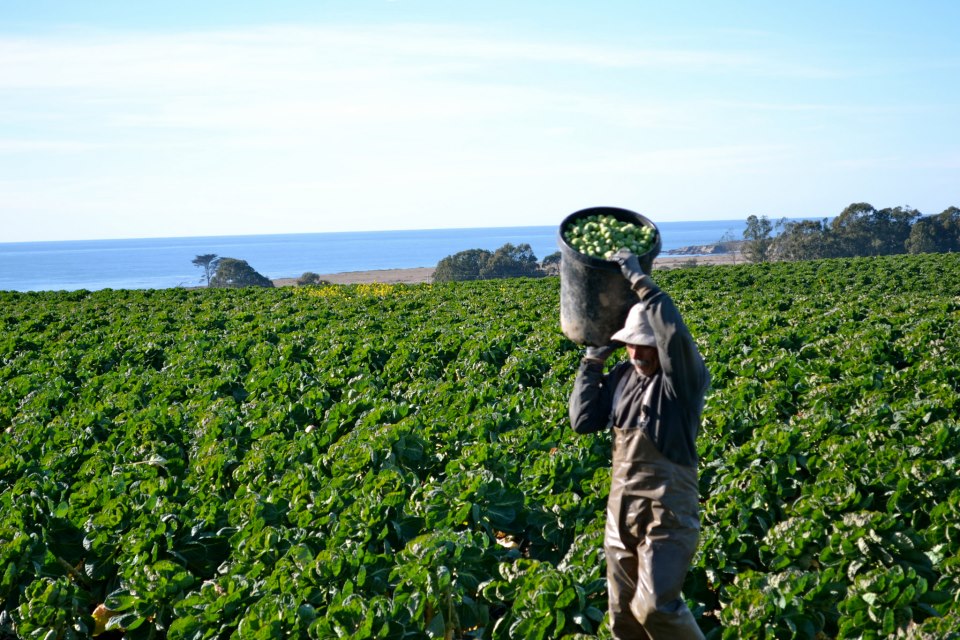Day 3- National Farmworker Awareness Week
(Names have been changed to protect the privacy of individuals.)
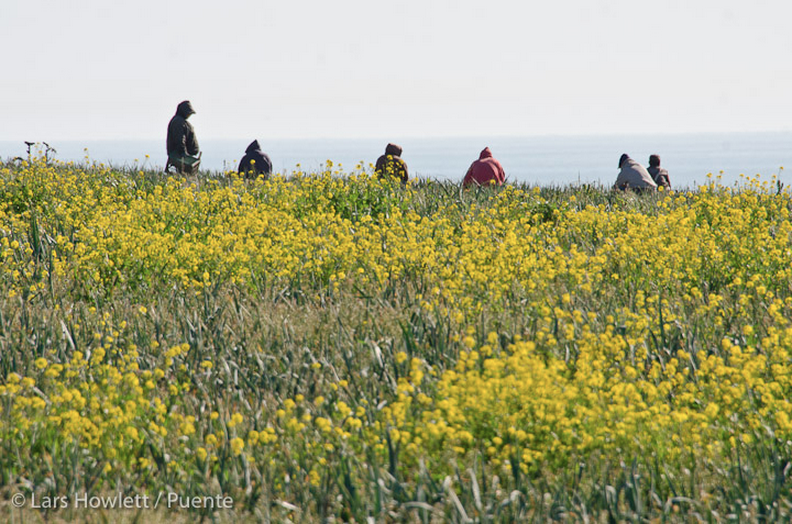
Marcos and Efraín are neighbors from the same town in Mexico. They arrived together to Pescadero about six weeks ago after ten days of travel including seven days of walking. They were drawn to the area because they both have family members working at the same ranch, and were told there would be work picking Brussels sprouts, and that it was a nice place. The two men had been in the U.S. before, but this was their first time to California.
Both had similar agriculture jobs in Mexico, but only earned a fraction of what they earn here. “The $8-$10 we earned daily there was hardly enough to get through that day. Here we earn enough to support the daily needs of our families as well as save some.”
Marcos has two children ages 12 and 5, and Efraín also as two children, ages 9 and 6. “Being far from my family is the hardest part. People suffer in Mexico beginning with the first step they take from their door. We are suffering here too, but in different ways. Living in very tight quarters in an isolated place is tough. But it’s for our families, so it’s worth it.”
Efraín plans on staying for two years and Marcos for three years. “Although some form of legalization would be great!” they both agreed and have hope that the recent discussions by our government leaders will turn into something real during their stay.
When asked about the help Puente provides, Marcos said, “It’s very appreciated. I tell my wife about the support we get here [from Puente]…she is surprised to hear it, no one supports her like that in Mexico.”

